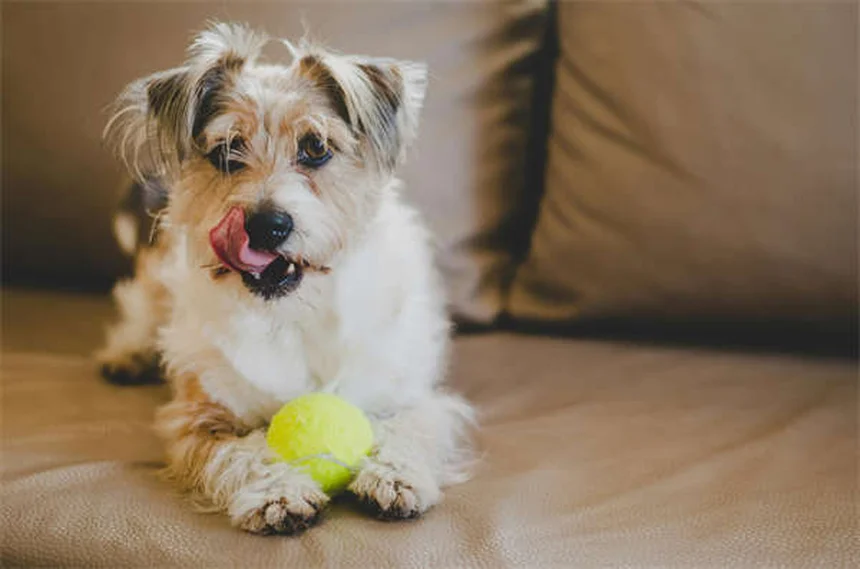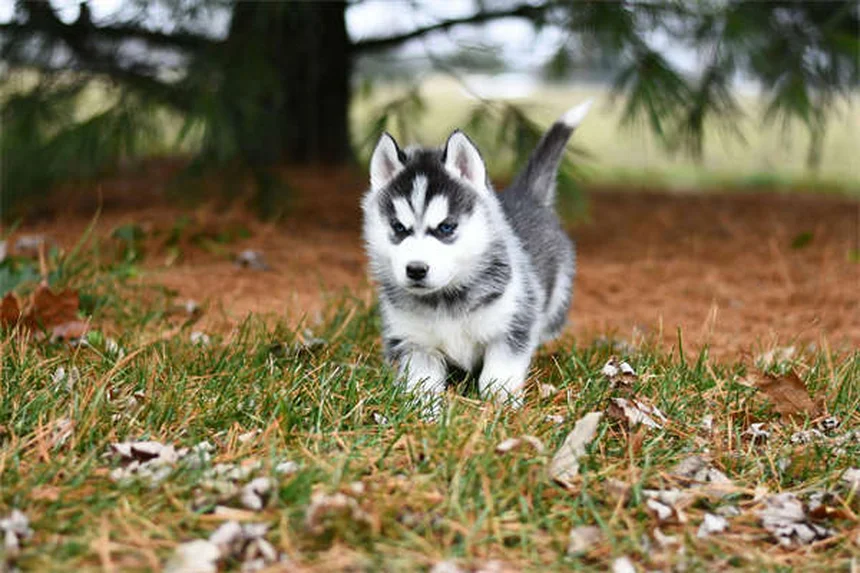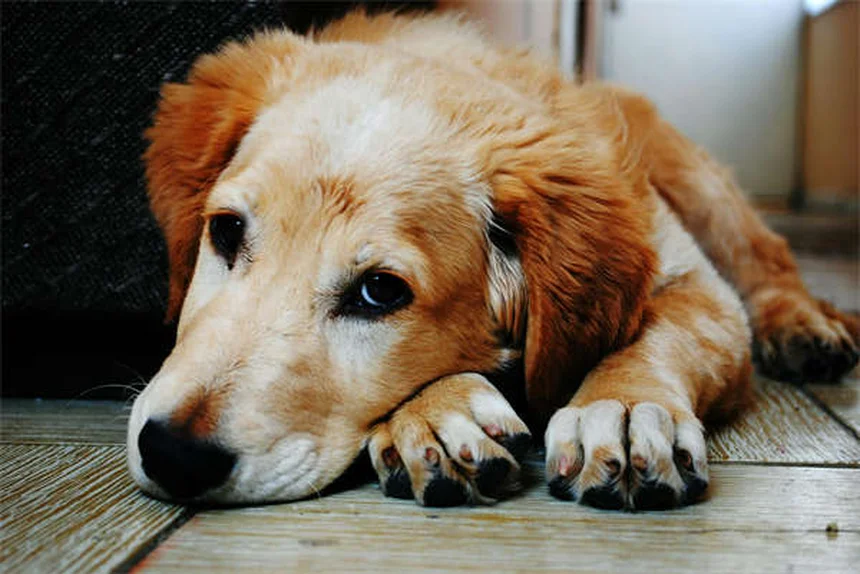How to stop puppy biting? The answer is simple: with patience, consistency, and the right techniques! Puppy biting is completely normal behavior - those sharp little teeth are how they explore the world and communicate. But let's be real, it hurts when your furry land shark chomps down on your fingers or ankles. The good news? I've helped hundreds of puppy parents through this phase, and I'm going to share exactly what works.First, understand that puppies bite for three main reasons: they're teething (ouch!), they're playing (just like they would with littermates), or they're curious about their environment. Your job isn't to stop the biting completely - that's impossible and unnatural - but to teach them bite inhibition and redirect the behavior to appropriate chew toys. We'll cover everything from must-have teething toys to socialization tips that make a huge difference.
E.g. :Mucus in Dog Poop: What It Means & When to Worry
- 1、Why Puppies Bite: Understanding the Behavior
- 2、Effective Strategies to Stop Puppy Biting
- 3、Essential Tools for Teething Puppies
- 4、Socialization: The Key to Bite Inhibition
- 5、Common Mistakes to Avoid
- 6、When to Seek Professional Help
- 7、Long-Term Bite Prevention
- 8、The Science Behind Puppy Biting
- 9、Breed-Specific Biting Tendencies
- 10、The Emotional Side of Puppy Biting
- 11、Advanced Training Techniques
- 12、Nutrition's Role in Biting Behavior
- 13、When Play Turns to Overstimulation
- 14、Technology Aids for Bite Training
- 15、FAQs
Why Puppies Bite: Understanding the Behavior
Exploring the World Through Their Mouth
You know how human babies put everything in their mouths? Puppies do the exact same thing! Biting is their way of exploring textures, tastes, and reactions. When your puppy chomps on your favorite shoe, they're not being naughty - they're just conducting important scientific research!
Think about it this way: when Puppy A bites Puppy B too hard during playtime, Puppy B yelps and stops playing. This teaches Puppy A about bite inhibition. We humans need to give similar clear feedback. If your puppy bites you too hard during play, make a high-pitched "ouch!" sound and stop playing immediately. They'll quickly learn that gentle play means more fun time with you!
The Teething Phase: Ouch Those Gums Hurt!
Between 12-16 weeks, your puppy's adult teeth start coming in. Imagine having 28 tiny knives pushing through your gums - no wonder they want to chew everything! This is when you'll see the most intense biting behavior, usually peaking around 13 weeks.
Here's a comparison of puppy teething stages:
| Age | Teeth Development | Biting Intensity |
|---|---|---|
| 8-12 weeks | Baby teeth fully in | Moderate |
| 12-16 weeks | Adult teeth coming in | High |
| 4-7 months | All adult teeth in | Decreasing |
Effective Strategies to Stop Puppy Biting
 Photos provided by pixabay
Photos provided by pixabay
Redirecting Chewing to Appropriate Items
Ever notice how a tired toddler gets cranky? Puppies are the same! A well-rested puppy with proper outlets for their energy is much less likely to turn you into a chew toy. Make sure your pup gets:
- Plenty of exercise (but not too much for their growing bodies!)
- Mental stimulation through training and puzzle toys
- Quality nap time in their crate or quiet space
Keep a variety of chew toys handy - different textures keep things interesting. When you catch them chewing something inappropriate, calmly swap it for an approved toy. Praise them when they make the right choice!
Handling Playful Nipping
Did you know that continuing to play after a puppy bites actually teaches them that biting works? This is one of the most common mistakes new puppy parents make.
Here's what to do instead: the moment those teeth touch your skin, say "ouch!" in a high-pitched voice (like another puppy would yelp), stand up, and walk away for 30 seconds. When you return, immediately offer a toy. Repeat consistently, and your smart pup will learn that toys = playtime continues, but biting skin = fun stops.
Essential Tools for Teething Puppies
Must-Have Chew Toys
Not all chew toys are created equal! For teething puppies, look for these features:
- Soft rubber that's gentle on sore gums
- Textured surfaces to massage gums
- Freezable options for extra soothing relief
Some of our favorites include the Kong Puppy Toy (perfect for stuffing with frozen treats) and the Nylabone Puppy Chew (designed specifically for teething relief). Always supervise your puppy with any chew toy to prevent accidental swallowing of pieces.
 Photos provided by pixabay
Photos provided by pixabay
Redirecting Chewing to Appropriate Items
Want to know a secret weapon for sore puppy gums? Frozen carrots! They're safe, healthy, and the cold provides wonderful relief. You can also try:
- Frozen washcloths (tie a knot in the middle for better grip)
- Ice cubes made from low-sodium chicken broth
- Special puppy popsicles from your local pet store
Remember: while these help with teething pain, they shouldn't replace proper chew toys that teach appropriate chewing habits.
Socialization: The Key to Bite Inhibition
Why Puppy Classes Matter
Did you know that puppies who attend socialization classes are 75% less likely to develop serious biting issues? That's because they learn bite control from other puppies in a safe, supervised environment.
In these classes, your pup will discover:
- How hard is too hard when mouthing
- Reading other dogs' body language
- Appropriate play behaviors
- Confidence around new experiences
Setting Up Puppy Playdates
Can't make it to formal classes? Arrange playdates with other vaccinated puppies! Here's what to look for in a good playmate:
- Similar size and energy level
- Up-to-date on vaccinations
- Friendly, well-socialized temperament
Always supervise play sessions and intervene if things get too rough. A good rule of thumb: if both puppies keep coming back for more, the play is appropriate!
Common Mistakes to Avoid
 Photos provided by pixabay
Photos provided by pixabay
Redirecting Chewing to Appropriate Items
Here's something that might surprise you: yelling at or hitting a biting puppy actually makes the problem worse! Punishment creates fear and can lead to more aggressive biting.
Instead of saying "no," focus on teaching what you want your puppy to do. Reward calm behavior with treats and praise. If they get too excited, give them a time-out to calm down - not as punishment, but as a chance to reset.
Don't Encourage Mouthing Games
It might seem cute when your 10-pound puppy chases your fingers, but imagine that behavior in a 60-pound adult dog! Avoid games that teach your puppy to see human body parts as toys.
Instead, always use toys for interactive play. Keep a stash of tug toys, balls, and soft chew toys handy. When your puppy goes for your hands, immediately redirect to an appropriate toy and praise them for making the switch.
When to Seek Professional Help
Warning Signs of Serious Issues
While most puppy biting is normal, sometimes it indicates deeper problems. Contact a professional if you notice:
- Growling or stiff body language with bites
- Breaking skin or leaving bruises
- Biting that seems fearful or aggressive
- No improvement after consistent training
Certified dog trainers or veterinary behaviorists can assess whether your puppy's biting is normal or needs special intervention. Early help prevents small issues from becoming big problems!
The Role of Breed and Temperament
Did you know some breeds are naturally more mouthy than others? Herding breeds like Border Collies often nip at heels (it's in their genes!), while retrievers love carrying things in their mouths.
Understanding your puppy's natural tendencies helps you manage expectations. A Labrador might need extra chew toys, while a Shepherd mix may need additional training to curb herding behaviors. Work with your puppy's nature, not against it!
Long-Term Bite Prevention
Teaching Gentle Mouth Habits
Want your puppy to grow into a dog with soft mouth manners? Start teaching these skills early:
- "Take it gently" - offer treats flat in your palm until they learn to take food softly
- Trading games - teach them to release items willingly for something better
- Handling exercises - get them comfortable with having their mouth and paws touched
These exercises prevent resource guarding and create a dog who's careful with their mouth around people.
Consistency is Key
Here's the truth: stopping puppy biting isn't a one-time fix. It takes weeks or months of consistent responses from every family member.
Create house rules like:
- Always redirect biting to toys
- Never allow mouthing on skin or clothes
- Use the same "ouch" signal when bites hurt
- Reward calm behavior with attention and treats
With patience and teamwork, your land shark will transform into a polite companion!
The Science Behind Puppy Biting
How Puppy Brains Develop Bite Control
You might wonder - why can't puppies just be born knowing how to control their bites? Well, their brains are still wiring themselves! Bite inhibition is a learned skill, not an instinct. Puppies need feedback to understand what's acceptable.
Here's something fascinating: research shows puppies who get proper bite inhibition training grow into dogs less likely to cause serious injury if they ever do bite as adults. That's why it's so crucial to teach them early! The neural pathways forming now will last their whole lives.
The Role of Play in Social Development
Ever watched puppies play and thought it looks like chaos? There's actually method to the madness! Play fighting teaches vital social skills that help puppies function in dog society.
During play, puppies learn:
- How to read subtle body language cues
- When to back off if play gets too rough
- Appropriate ways to interact with different dogs
- Their own strength and how to moderate it
Without this play experience, dogs often struggle with social interactions later in life.
Breed-Specific Biting Tendencies
Working Dogs vs Companion Breeds
Did you know your puppy's breed heritage plays a big role in their biting behavior? Working breeds often retain stronger mouthing instincts because their ancestors needed to grip, herd, or retrieve.
For example:
| Breed Type | Typical Mouthing Level | Common Challenges |
|---|---|---|
| Herding Breeds | High | Nipping at heels |
| Retrievers | Moderate-High | Carrying objects constantly |
| Companion Breeds | Low-Moderate | Less interest in chewing |
Tailoring Training to Your Puppy's Genetics
Is it fair to expect a Border Collie puppy not to herd? Not really! Instead of fighting their instincts, we can channel them appropriately.
For herding breeds, teach them to direct their energy toward specific toys rather than your ankles. Retrievers can learn to "hold" approved items instead of your sleeve. Understanding your puppy's natural drives helps you work with them, not against them.
The Emotional Side of Puppy Biting
Stress Signals You Might Be Missing
Sometimes biting isn't just about teething or play - it's communication! Puppies often mouth more when they're feeling overwhelmed.
Watch for these subtle stress signs:
- Excessive yawning when not tired
- Lip licking when not eating
- Avoiding eye contact
- Tense body posture
Recognizing these signals helps you address the root cause rather than just the symptom (biting).
Building Confidence Through Positive Experiences
Did you know fearful puppies often bite more? It makes sense when you think about it - they're trying to protect themselves from scary situations.
The solution? Gradual exposure to new experiences paired with lots of praise and treats. Start small - maybe just sitting together watching the world go by. As your puppy gains confidence, their need to defend themselves with teeth decreases.
Advanced Training Techniques
Teaching the "Off" Command
Once your puppy understands basic bite inhibition, you can teach more precise mouth control. The "off" command tells your puppy to remove their mouth from something without punishing natural curiosity.
Here's how it works:
1. When your puppy mouths your hand, say "off" calmly
2. Freeze your hand completely (movement triggers more biting)
3. The moment they release, praise and offer a toy instead
4. Repeat consistently until they respond to the verbal cue alone
The Power of Impulse Control Games
Want to really level up your puppy's self-control? Try these fun exercises:
- "It's Yer Choice": Hold treats in a closed fist, only opening when your puppy stops trying to pry it open
- "Leave It": Place a treat on the ground and cover it until your puppy looks away
- "Wait": Teach your puppy to pause before taking offered items
These games strengthen the same mental muscles needed for bite control!
Nutrition's Role in Biting Behavior
Could Diet Be Contributing to Chewing?
Here's something most puppy parents don't consider - what if your puppy's food affects their chewing habits? Some studies suggest nutritional deficiencies can increase chewing behaviors.
Look for these signs:
- Chewing non-food items constantly
- Eating dirt or other strange substances
- Lackluster coat quality
- Low energy levels
A high-quality puppy food with balanced nutrients might help reduce excessive chewing.
Treats That Support Dental Health
Why not make treats work double duty? Many products now combine chewing satisfaction with dental benefits.
Great options include:
- Enzymatic dental chews
- Rubber toys designed to clean teeth
- Edible dental sticks approved by vets
- Frozen carrots (nature's toothbrush!)
These help satisfy the chewing urge while promoting oral health - win/win!
When Play Turns to Overstimulation
Recognizing the Tipping Point
Have you noticed your puppy gets extra bitey when they're tired? That's because puppies, like toddlers, often get cranky when overstimulated.
Watch for these signs of overarousal:
- Zooming around uncontrollably
- Ignoring commands they normally know
- Harder bites than usual
- Difficulty settling down
This is nature's way of saying "nap time!"
Creating a Calm Environment
What if I told you your home setup could reduce biting incidents? It's true! Puppies thrive on routine and predictability.
Try these calming strategies:
- Designated quiet spaces with comfy beds
- Consistent nap schedules (yes, puppies need schedules!)
- Soft classical music during rest times
- Pheromone diffusers in resting areas
A well-rested puppy is a polite puppy!
Technology Aids for Bite Training
Interactive Toys That Teach
Modern puppy parents have awesome tech tools our grandparents never dreamed of! Many interactive toys now incorporate bite training principles.
Some innovative options:
- Treat-dispensing cameras that let you interact remotely
- Puzzle feeders that make puppies work for meals
- Automated ball launchers for independent play
- Chew monitors that track your puppy's habits
These can supplement (but never replace) your hands-on training.
Using Apps to Track Progress
Want to really geek out on your puppy's development? Several apps now help track biting incidents and improvements.
Benefits include:
- Identifying patterns in biting behavior
- Noting what interventions work best
- Sharing data with your trainer or vet
- Celebrating progress milestones
Data-driven puppy parenting - welcome to the future!
E.g. :Mouthing, Nipping and Biting in Puppies | ASPCA
FAQs
Q: At what age do puppies stop biting?
A: Most puppies naturally reduce biting as they finish teething around 6-7 months old. However, the peak biting phase typically hits around 12-16 weeks when adult teeth are coming in. Here's what you need to know: while teething explains some biting, the behavior continues because it works for them - they get attention or play. That's why consistent training is crucial. I recommend continuing bite inhibition exercises even after teething ends to ensure your dog develops soft mouth habits. Remember, every puppy is different - some catch on quickly while others need more time and repetition.
Q: How do I get my puppy to stop biting my hands and feet?
A: Hands and feet are prime targets because they move - and movement triggers your puppy's chase instinct! Here's my proven 3-step method: First, always have a chew toy handy to redirect to. Second, when teeth touch skin, say "ouch!" in a high pitch (like a puppy yelp) and immediately stop moving. Third, if they persist, calmly leave the room for 30 seconds. This teaches that biting ends playtime. Pro tip: wear thicker pants/socks during training phases to make accidents less painful. And never, ever play hand-chase games - that just teaches them your fingers are toys!
Q: What are the best toys to stop puppy biting?
A: After testing dozens of options with my clients' puppies, I recommend these types: 1) Freezable rubber toys like Kong Puppy - the cold soothes sore gums. 2) Rope toys for gentle tug play (supervise closely). 3) Long stuffed animals they can "kill shake" without reaching your hands. Avoid hard bones or toys small enough to swallow. Rotate toys weekly to keep them interesting. My secret weapon? Frozen carrots - they're cheap, edible, and provide great teething relief!
Q: Is puppy biting a sign of aggression?
A: In most cases, absolutely not! Normal puppy biting is loose, bouncy, and accompanied by wagging tails. True aggression is rare in puppies and involves stiff body language, growling, and deliberate hard bites. That said, if your puppy's biting seems intense, doesn't respond to training, or frightens you, consult a professional. Early intervention prevents problems. Remember: what's cute in a 10-pound puppy is dangerous in a 60-pound adult, so take all biting seriously.
Q: How long does it take to train a puppy to stop biting?
A: With daily consistency, you'll see noticeable improvement in 2-4 weeks. But complete bite inhibition takes months - just like raising a child! The timeline depends on: 1) Your consistency (all family members must follow the rules). 2) Your puppy's breed (herding dogs often take longer). 3) How much socialization they get with other puppies. Don't get discouraged! Those needle teeth will be gone soon, and your patience will pay off with a well-mannered adult dog.



Discuss